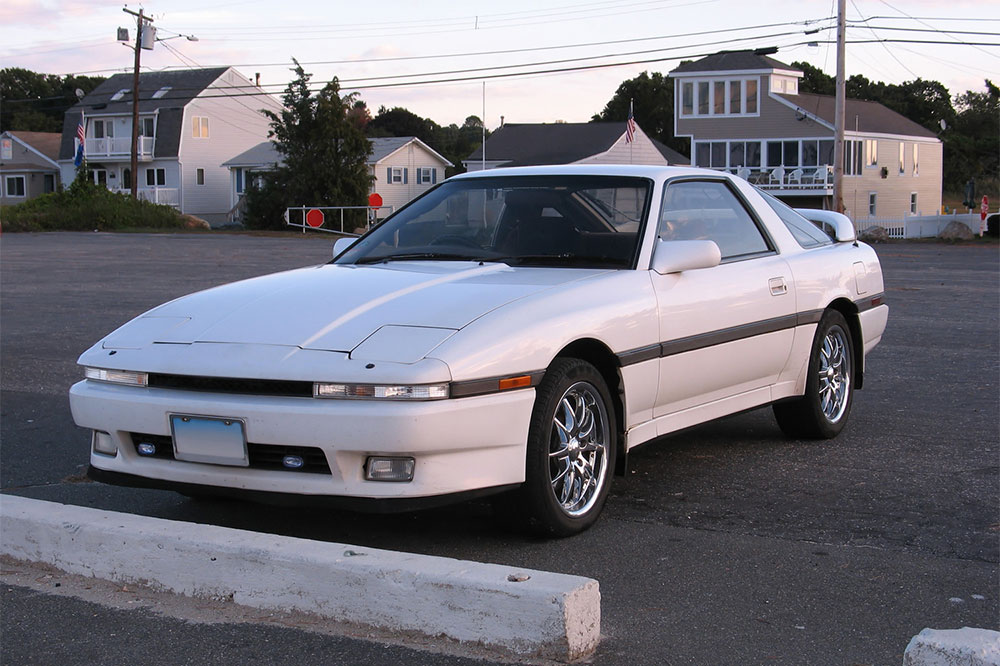3 Reasons to Buy a Used Pontiac Firebird
The Pontiac Firebird is a classic! Everyone has something to say about the gorgeous car that has spanned over 35 years with four different generations. It has been a part of major Hollywood and cultural touchstones, making it invaluable. Although the cars were relatively affordable when they were launched, and some remain so today, a few enjoy the status of “exotic possessions.” Here’s why you should buy a used Pontiac Firebird.
Timeless styling
The first generation of the Pontiac Firebird ran for just three years, from 1967 to 1969, but over 250,000 units of the model were sold. The car featured classic “coke-bottle” styling, where the pronounced front and rear wheel arches led to a narrow-waisted mid-section.

The second-gen Pontiac Firebird was known for its iconic and timeless styling. Rarely does a car gain legendary status, but this style ran for 12 consecutive years, making it a monumental feat for any vehicle. Designed by Bill Porter and Jack Humbert as the Chief Designers in the Pontiac Studio, driving a Pontiac Firebird is akin to driving a piece of history itself. The design, especially around the bumpers, changed significantly over the years as federal bumper regulations increased around the launch of the 1974 model.
The Pontiac Firebird became the classic “pony” car, a sporty yet compact car with an exotic look and lots of power. The Firebird was the base model, but the car was also available in Sprint, Esprit, Formula, Trans Am, and Ram Air models.
Efficiency
The Pontiac Firebird, particularly the third generation (1982 to 1992) was known for its efficient management. The body shape of the car was developed in a wind tunnel, with the windshield sloped to 62 degrees and concealed headlights under pop-up panels. The car offered a 2.5-liter inline six, which performed at an impressive 32 mpg on the highway. From the highly efficient third-generation Pontiac Firebird, the company moved to create a more powerful engine for the fourth-gen. The last range of Firebird (last sold in 2002) had the mighty LS V8, along with enhanced safety features like airbags and antilock brakes.
Performance
The first generation of the Pontiac Firebird came with a choice of engines, from a 230-cubic-inch SOHC straight six with 165 horsepower up to a 400-cubic-inch Ram Air IV model with 345 horsepower. While most base models of the Pontiac Firebird were modestly powered, the second-gen (1970) offered at the top of the heap a 400-cubic-inch/6.6-liter Ram Air IV motor with up to 370 horsepower. This displacement was increased in the 1977 model to 455 cubic inches/7.5 liter, but the car’s power was impacted by unleaded gas and smog laws. In the last years that the Pontiac Firebird was manufactured, the Firebird Trans Am model produced a whopping 325 horsepower from its 5.7-liter V8 engine and covered a quarter mile in 13.16 seconds in testing.
No car today bears resemblance to the classic, timeless styling of the Pontiac Firebird. When driving, the car still commands the attention and awe of the people. The car had a range of special edition models like the Firehawk, the 1994 Trans Am GT, the 1999 30th anniversary Trans Am, and the 2002 Collector’s Edition Trans Am. Other models such as the 1969 Trans Am and 1970 Firebird Trans Am Ram Air IV are selling for over $100,000, and the 1992 Firebird SLP Firehawk Coupe, 1997 Firebird SLP Firehawk LT-4 Coupe, and others going for over $60,000 today, a testament to the fine craftsmanship of these cult-classic vehicles, made for everyone.

